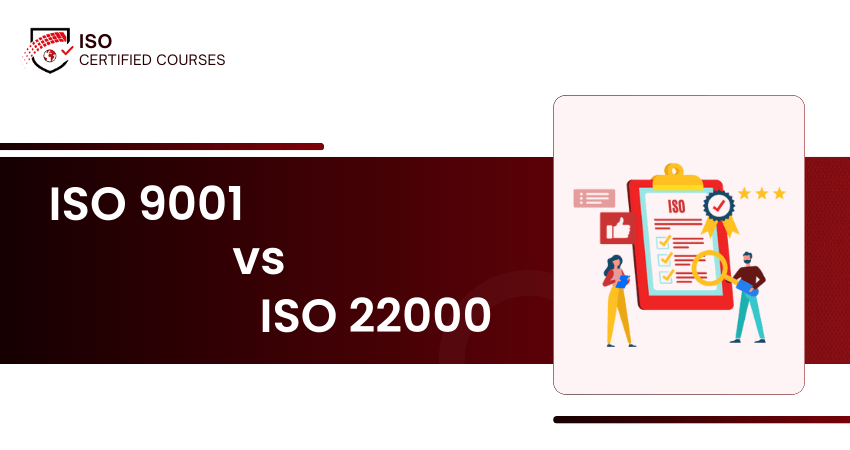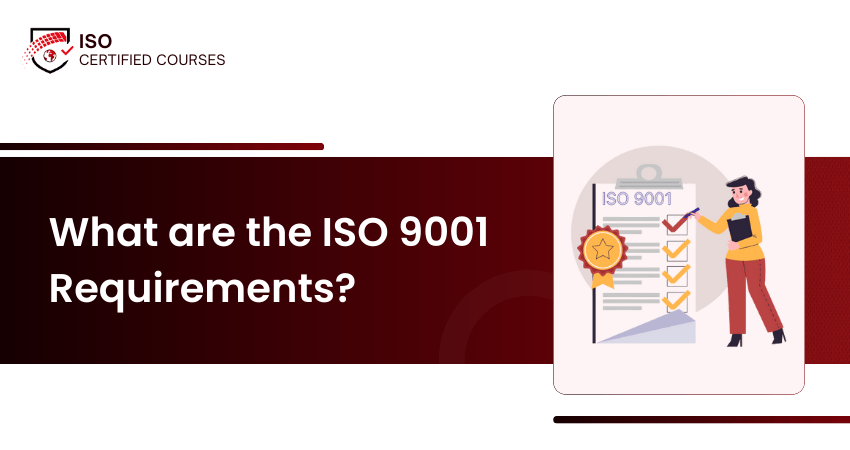ISO 19011 Training Overview
ISO 19011 Auditing Guidelines Course Overview
The ISO 19011 course provides essential knowledge and practical tools for planning, conducting, and improving management system audits. It offers a unified approach to auditing ISO standards such as ISO 9001, ISO 14001, ISO 27001, and others. The course helps professionals understand audit principles, develop checklists, gather evidence, and report findings. Ideal for internal auditors, lead auditors, quality professionals, and managers, ISO 19011 supports transparent, objective, and risk-based auditing practices.
Key Topics Covered
Introduction to ISO 19011: Purpose, scope, and structure of audit guidelines
Audit Principles: Integrity, objectivity, evidence-based approach, and risk-focused thinking
Audit Programme Management: Planning and overseeing a series of audits for system-wide evaluation
Audit Activities: Conducting effective interviews, collecting evidence, and reporting findings
Course Benefits
Audit Confidence: Gain the skills to audit ISO systems accurately and independently
Cross-Standard Expertise: Apply a consistent approach across multiple ISO standards
Process Improvement: Identify root causes and drive real change from audit findings
Regulatory & Certification Support: Help organisations maintain compliance and certification readiness
This course is ideal for professionals involved in auditing or managing ISO systems, including:
Internal and External Auditors
Lead Auditors across ISO standards
Quality and Compliance Officers
HSE and Information Security Managers
Risk Management and Governance Professionals
Consultants and Business Excellence Leads

ISO 19011 Training Outline
ISO 19011 Course Outline
Module 1: Introduction to ISO 19011
- Scope
- Normative References
- Terms and Definitions
- Principles of Auditing
Module 2: Managing an Audit Programme
- General
- Establishing audit Programme Objectives
- Determining and Evaluating Audit Programme Risks and Opportunities
- Establishing the audit Programme
- Roles and Responsibilities of Individuals’ Managing Audit Programme
- Competence of Individuals’ Managing Audit Programme
- Establishing Extent of Audit Programme
- Determining Audit Programme Resources
- General
- Defining Objectives, Scope and Criteria for An Individual Audit
- Selecting and Determining Audit Methods
- Selecting Audit Team Members
- Assigning Responsibility for An Individual Audit to Audit Team Leader
- Managing Audit Programme Results
- Managing and Maintaining Audit Programme Records
- Monitoring audit Programme
- Reviewing and Improving Audit Programme
Module 3: Conducting an Audit
- General
- Initiating Audit
- General
- Establishing Contact with Auditee
- Determining Feasibility of Audit
- Preparing Audit Activities
- Performing Review of Documented Information
- Audit Planning
- Assigning Work to Audit Team
- Reparing Documented Information for Audit
- Conducting Audit Activities
- General
- Assigning Roles and Responsibilities of Guides and Observers
- Conducting Opening Meeting
- Communicating During Audit
- Audit Information Availability and Access
- Reviewing Documented Information While Conducting Audit
- Collecting and Verifying Information
- Generating Audit Findings
- Determining Audit Conclusions
- Conducting Closing Meeting
- Preparing and Distributing Audit Report
- Completing Audit
- Conducting Audit Follow-Up
Module 4: Competence and Evaluation of Auditors
- General
- Determining Auditor Competence
- General
- Personal Behaviour
- Knowledge and Skills
- Establishing Auditor Evaluation Criteria
- Selecting Appropriate Auditor Evaluation Method
- Conducting Auditor Evaluation
- Maintaining and Improving Auditor Competence

What You’ll Learn in this Course
By the end of the course, learners will be able to:
- Understand the ISO 19011 guidelines and their application across management systems
- Plan, conduct, and report audits with professionalism and accuracy
- Identify and evaluate audit findings based on objective evidence
- Develop risk-based audit programmes aligned with organisational priorities
- Promote continual improvement through constructive audit outcomes

What’s Included
Expert-led training by certified professionals
ISO 19011 Certificate
Comprehensive digital delegate materials
ISO 19011 Training Exam Details
To achieve the ISO 19011 Training Course, candidates will need to sit for an examination. The exam format is as follows:
- Question Type: Multiple Choice
- Total Questions: 30
- Total Marks: 30 Marks
- Pass Mark: 50%, or 15/30 Marks
- Duration: 40 Minutes
- Open Book/ Closed Book: Closed Book

Individual Training
Boost your expertise with our Individual Training, tailored for professionals seeking ISO knowledge at their own pace. Learn core standards, industry best practices, and implementation skills from certified experts.
Corporate Training
Empower your teams with our Corporate Training solutions, designed to align ISO standards with your organisational goals. Ensure compliance, boost efficiency, and build a culture of continuous improvement across your workforce.
Boost Your Career with ISO Training
Average salary boost for professionals with our ISO Training in compliance and standards roles
85%Learners begin roles in quality assurance, compliance, or audit after completing our ISO Courses
90% Compliance Readiness
Organisations report enhanced operational efficiency and preparedness following our ISO Training for employees
-
Manufacturing and Production
-
Energy and Utilities
-
Construction and Infrastructure
-
Waste Management and Recycling
-
Information Technology and Information Security
-
Public Sector and Environmental Services
Our Immersive Learning Solution
Hands-On Learning Experience
Engage with real-world scenarios, interactive tasks, and simulations that bridge theory and practical application.
Expert-Led Delivery
Learn from seasoned professionals with deep industry experience and insight into ISO standards and beyond.
Flexible Learning Formats
Choose from Online Instructor-Led, Online Self-Paced, or Classroom sessions designed to suit your pace and preferences.
Customised Content
Training aligned with your sector, goals, and challenges, ensuring relevant, targeted learning every time.
Empowering Growth with Tailored Training Solutions
We help organisations equip their teams with the skills and knowledge needed to consistently meet industry standards. Our corporate training is designed around your specific operational goals, ensuring alignment with the ISO framework.
With a strong focus on real-world application and measurable outcomes, each session drives practical capability and lasting improvement. By fostering standard-driven performance across all levels, we empower your workforce to contribute confidently and consistently to organisational success.
- Delivered by industry-certified trainers with hands-on experience
- Custom content aligned to your sector, standards, and strategy
- Flexible formats, including on-site, virtual, or blended, to suit your teams
On-Demand Access
Custom and Scalable Solutions
24x7 Support












Feedback From Our Clients
The ISO 9001 Internal Auditor Training gave me practical insight into quality systems and how to apply audit techniques effectively. The sessions were clear and approachable, even without prior auditing experience. I now feel confident reviewing documentation, identifying nonconformities, and contributing to continuous improvement. The real-world examples and audit scenarios helped me understand the practical side of compliance and how it fits into our daily operations.
Completing the ISO 45001 Foundation Training provided me with a solid understanding of occupational health and safety standards. The training clarified legal requirements, hazard identification, and risk control measures. I’ve applied this knowledge to improve our incident response protocols and reinforce safety culture within the team. It’s also made me more effective at communicating compliance expectations and supporting ongoing H&S initiatives.
The ISO 22301 Foundation Training helped deepen my knowledge of business continuity planning and risk preparedness. The course content was practical and focused on real implementation challenges, which I could immediately relate to my role. I now play a more active part in reviewing continuity plans and coordinating recovery strategies. The training has improved how we manage operational risks and strengthened our overall resilience.
I registered my team in the ISO 9001 Lead Implementer Training, and the improvements were visible right away. The training gave us the tools to standardise workflows, enhance documentation, and build a consistent quality management system. The team has taken ownership of processes and is now more proactive in identifying areas for improvement. It’s significantly enhanced how we align with best practices and deliver results with greater reliability.
Our team participated in the ISO 45001 Lead Auditor Training to reinforce our internal safety and compliance framework. The training not only improved our auditing skills but also helped us critically assess our workplace health and safety practices. We’ve since implemented stronger controls and improved reporting structures. The shift in awareness and engagement has been very positive, especially in high-risk areas.
Frequently Asked Questions
What is ISO 19011?
ISO 19011 is a global standard offering
guidelines for auditing management systems, including principles, audit
programme management, and conduct of audits.
Who should use ISO 19011?
It is essential for internal auditors, lead
auditors, and professionals overseeing or conducting audits across ISO
management systems.
What types of systems does ISO 19011 apply to?
It applies to audits of ISO standards such
as ISO 9001, ISO 14001, ISO 27001, ISO 45001, and other management systems.
Can ISO 19011 be used by organisations with multiple certifications?
Yes, it supports integrated audits and
provides a unified approach to auditing multiple systems efficiently.
How does ISO 19011 help improve audit quality?
By providing structured guidance on audit
planning, evidence collection, and reporting, it ensures audits are reliable,
impartial, and value-driven.








































